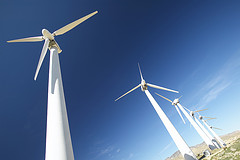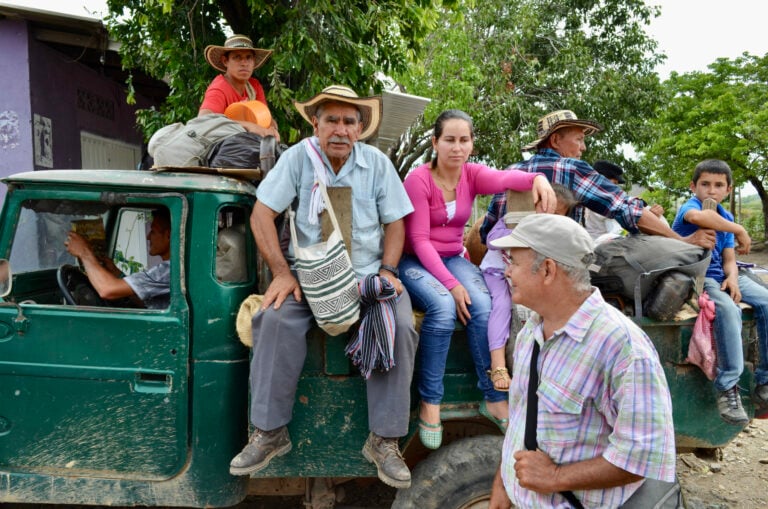
Greenpeace: Nuon and Essent do not do enough for sustainable electricity
Nuon and Essent do not do enough for sustainable electricity supply. Dong appears to be willing to switch to clean electricity, and has cancelled plans to build new coal-fired power stations. These are the main conclusions drawn by Greenpeace on the basis of the new SOMO report, ‘Sustainability in the Dutch Power Sector’.
According to Agnes de Rooij, climate and energy campaign leader at Greenpeace, “Nuon and Essent make a lot green claims, but their actions in practice are disappointing. At the same time, energy producers such as Eneco and Dong are demonstrating that the switch to sustainable electricity production is achievable. We are calling on Nuon and Essent to copy this good example.”
For the fourth year in a row, SOMO’s study looked at the level of sustainability of the seven largest energy producers[1] active in The Netherlands. Most of these energy companies are taking small steps towards clean energy. Nuon and Essent are turning out to be notable slow-coaches in this respect, however. Essent is and remains the largest coal-fired energy producer in the Netherlands. Nuon’s score is worse this year than last, and it will be investing primarily in coal-fired power stations in the near future. Dong appears willing to make the switch to clean energy. While Dong does own coal-fired power stations, it has cancelled plans to build new coal-fired plants, and is investing only in wind, gas and biomass capacity for electricity production.
The key facts as summarised by Greenpeace:
Essent/ RWE
- Essent/RWE is and remains the largest producer of coal-fired electricity in the Netherlands: 62% of the electricity generated by Essent in Europe comes from coal. Essent/RWE is also the largest polluter, in absolute figures: 15,540 MW in coal-fired power plants, 10,925 in lignite-fired plants. Of all the energy producers surveyed, Essent/RWE is investing the most in coal-fired power stations, now and in the future.
- Only 10% of Essent/RWE’s current investment is going into wind energy, putting it in last place. Essent/RWE does have a lot of future investments in wind and water energy in the pipeline: almost 20,000 MW. Most of these have barely been developed in detail, however, and are still in the planning phase.
- Essent is not open about which companies it trades with in terms of coal and biomass. It does not state where it sources its uranium from. Essent does not participate in independent studies among its suppliers of raw materials.
Nuon/ Vattenfall
- The current investments in new sustainable capacity have dropped from 27% in 2009 to 11% in 2010.
- Planned investments for new coal-fired capacity in Europe increased by more than 29% in 2009 to over 41% in 2010.
- Nuon is not providing any openness on the origin of its coal. Nuon has not had its sourcing activities externally audited.
Dong Energy
- Dong is currently only building new gas and wind capacity.
- Dong has major long-term investment plans for clean energy, primarily wind and biomass.
- A large proportion of the production capacity, 57%, currently still consists of coal-fired power stations. All the plans for new coal plants have been cancelled, however.
- Dong implements a code of conduct for its suppliers. It is open about the origin of its raw materials, although it does not state the precise location. Dong has commissioned independent audits on its suppliers.
Related news
-
Overconsumption of transition minerals will cost us the earthPosted in category:Opinion
 Alejandro GonzálezPublished on:
Alejandro GonzálezPublished on: Alejandro González
Alejandro González -

-


